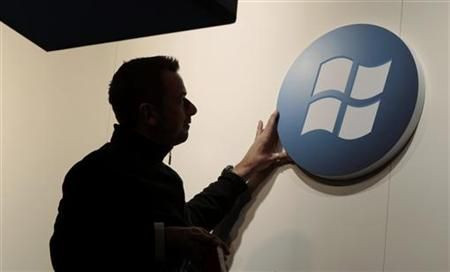In Google-Motorola Deal, Android Loses, Microsoft Wins

Google has agreed to buy struggling Motorola Mobility for $12.5 billion -- or $40 per share -- suddenly opening the door to Microsoft as it vies for new life in the mobile phone software business.
The merger gives HTC and Samsung -- or any other manufacturer reliant on Google's Android operating system -- a strong new reason to look towards Redmond, as their search-ally morphs into a direct competitor.
Apple makes the iOS operating system, but unlike Android, it is not available for licensing. Apple uses it exclusively for its own iPhone, iPad and iPod Touch devices. For manufacturers looking for software to power their smartphones and wanting to move away from Google, this leaves the only other viable software candidate to be Microsoft.
"Microsoft and Nokia seem the big initial winners from this transaction," Canaccord analyst Mike Walkley told Barons, "given that this creates a better chance for more players to support the Windows ecosystem."
The marriage would make Microsoft's own Windows Mobile operating system a more attractive choice for a number of reasons.
Manufacturers such as Samsung would feel uncomfortable using the Google's Android operating system while also competing against Motorola Mobility, which Google owns, Walkley explained.
The historic precedent for this is Nokia's Symbian operating system.
While Symbian was, in fact, an open operating system free for anyone to adopt, its ties to Nokia made it unattractive.
"Why would I compete with Nokia on their software," Walkley said.
Google defended the merger, however, with CEO Larry Page telling investors it would not only "create amazing user experiences that supercharge the entire Android ecosystem," but Google would "not change our commitment to run Android as an open platform."
Despite the promises, many see a potential "channel conflict" with Google's Android partners.
"By owning one of these [Android hardware] partners, it stands to alienate the others," B. Riley analyst Sameet Sinha said. "While the company had testimonials from other partners supporting the deal, the realities of business and competition, can be very different."
THI Research analysts Jamie Townsend goes further, characterizing the whole acquisition as a mistake, especially as it comes to the continued proliferation of Android.
"In our view, the major appeal of Android has always been its independence from the device vendors. That will no longer be the case," he said," adding that the "focus" on partners is now at risk.
It's an open question whether Google, a novice in hardware, can turn Motorola around without anointing it favored status within the Android license community.
The announcement couldn't come at a better time for Microsoft however. It comes weeks after Microsoft said has put the final touches on its latest Mango operating system, and released it to manufacturers.
The software features hundreds of improvements and features, and forms the basis for new Microsoft and Nokia phones. Tech pundits have already given it rave reviews, praising its social integration and surprisingly, its ease of use.
Research firm Gartner predicted earlier this year that Microsoft could jump back to the No. 2 for mobile platforms spot as early as 2015 as it gets a boost from the new software and its tie up with Nokia.
The partnership will give Microsoft access to Nokia's massive global distribution chain and allow it to piggy back the world's largest handset maker. Windows Phone devices will hold only 5 percent of the market in all of 2011, but will jump to nearly 20 percent in 2015, the firm said.
Time will tell if Google's acquisition will accelerate that.
© Copyright IBTimes 2025. All rights reserved.





















